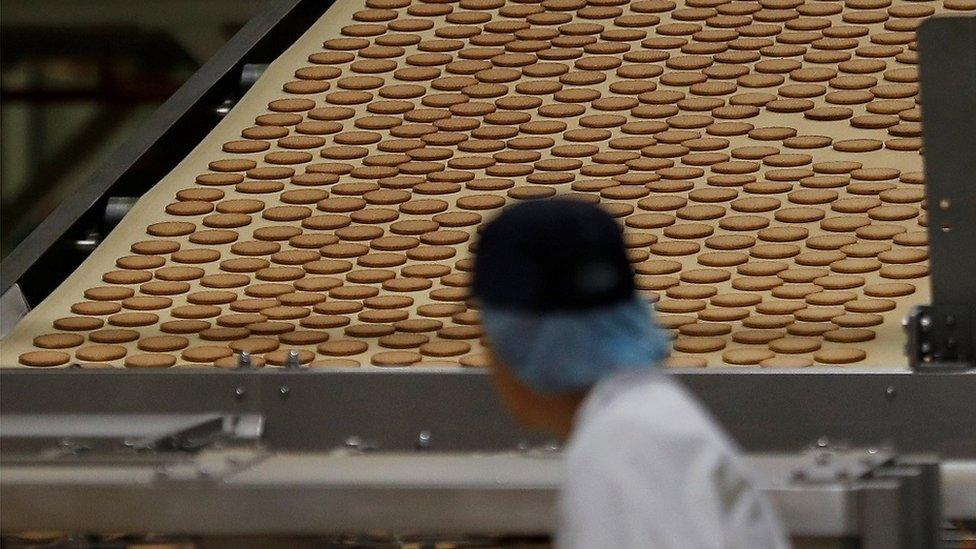Supermarkets 'raise the price of Christmas biscuits'
- Published
- comments

Cracking open some fancy biscuits is a welcome treat over Christmas, but this year the observant shopper might notice a hefty rise in prices.
Research by The Grocer based on data from Brandview has found price rises of up to a third on own-label Christmas biscuits sold by supermarkets.
It said five supermarkets had increased prices with shortbread and gingerbread the main victims.
The report says that a steep rise in butter prices is partly to blame.
Biscuits featured in the report include:
Asda's Christmas milk, dark and white chocolate biscuits up 33% to ôÈ4
Sainsbury's Scottish Shortbread Selection (600g) up 20% to ôÈ6
Tesco Novelty Shortbread Tin (250g) up 20% to ôÈ5
Morrisons Gingerbread Man up 23% to 80p
A Sainsbury's spokesperson said: "The cost of individual products is determined by a number of factors and prices can fluctuate, both up and down, as a consequence. We remain committed to providing our customers with great quality and value every time they shop with us."
Waitrose disputed the report's finding that its Christmas Choc Shortcake Selection (585g) had risen from ôÈ4 to ôÈ5. It said The Grocer had taken a discounted price in 2016 and the price was actually unchanged from last year.
Butter rolls
There has been a trend this year of rising food prices, driven by the weakness of the pound which makes imported food more expensive.
The latest inflation figures showed that in October the price of food and non-alcoholic drinks rose at an annual rate of 4.1%, the highest since September 2013.
Butter has seen even steeper rises, which experts says reflects falling milk production.
Data from European Commission showed that for the year to the end of October, butter prices had risen by 47% compared to last year. In recent weeks the price has fallen a bit, which has been welcomed by the Food and Drink Federation (FDF).
A spokesperson for the FDF said: "We will continue to monitor dairy market developments closely because extremes of price volatility are not helpful for UK food manufacturers or for the wider supply chain."